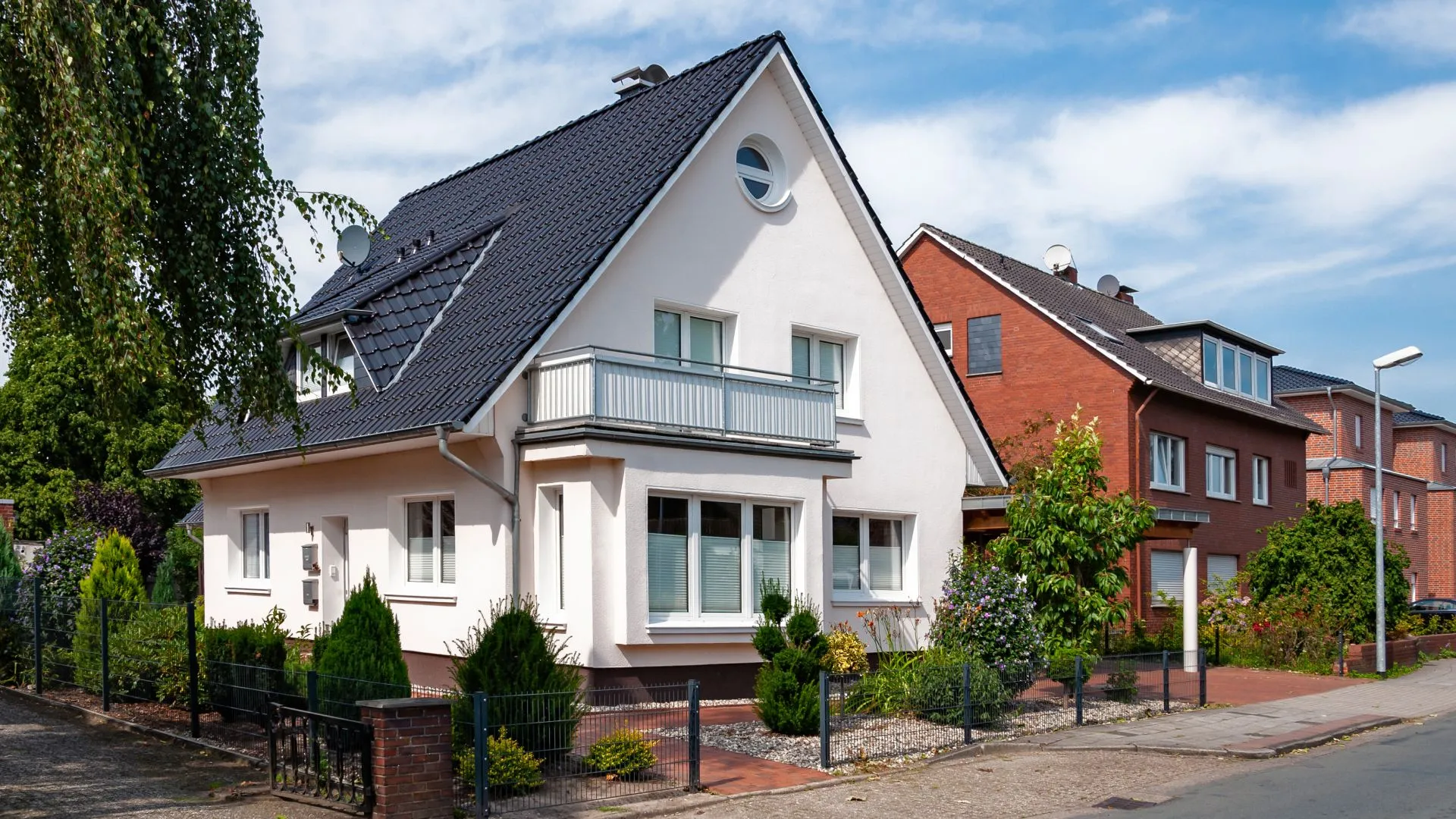Germany's Residential Property Market Analysis: Insights and Future Trends

Author
Phil LeuciIntroduction
Germany's residential property market has long been a pillar of stability in Europe, attracting both domestic and international investors. With its strong economy, well-regulated real estate sector, and steady demand, the German property market continues to show promise for those looking to invest or purchase a home. However, property prices in Germany have been on the rise, and understanding the factors driving this growth is crucial for anyone navigating this competitive market. As we move into 2025, key factors such as urbanization, government policies, and economic shifts are influencing property values across the country. While cities like Berlin, Munich, and Frankfurt remain prime destinations, emerging markets in smaller towns are also drawing attention due to their affordability and potential for growth. In this post, we’ll dive into the current state of the German property market, examine regional differences, and explore the trends shaping the future of property prices in Germany. Whether you're an investor, a first-time buyer, or simply interested in the market's evolution, this analysis provides valuable insights into one of Europe's most resilient real estate markets.
Overview of the German Property Market
The **German real estate market** has long been one of the most stable and attractive in Europe. With a robust economy, strong legal protections for property owners, and a transparent regulatory environment, Germany has consistently drawn both domestic and international investors. As one of the largest economies in Europe, the country's **housing market in Germany** has been a reflection of its overall economic stability and growth.
In recent years, the **property prices in Germany** have continued to rise steadily, particularly in major urban centers such as Berlin, Munich, and Frankfurt. However, the **real estate market forecast Germany** suggests that while prices will continue to increase, the pace of growth may slow, especially in the most expensive cities. This makes it crucial for investors to understand the underlying trends and **property investment opportunities in Germany** in order to make informed decisions.
If you're considering diving deeper into the **German property market**, be sure to explore the Real Estate Search Engine for a comprehensive view of properties available across the country.
Current State of Property Prices in Germany
As of 2023, **property prices in Germany** remain high in key cities, driven by persistent demand. The **German property trends** indicate that cities like Berlin and Munich continue to see steady growth in residential property prices, despite a cooling off in some markets across Europe.
However, there is also growing interest in regions outside the larger cities, where properties remain more affordable. Cities like Leipzig and Düsseldorf are gaining traction as emerging markets, where the **real estate demand in Germany** is expected to rise in the coming years due to increasing urbanization and lower property costs.
For an accurate and up-to-date snapshot of **property prices in Germany**, check out our Property Investment Calculator to evaluate potential investments.
Key Factors Driving the German Property Market
Economic Stability
The continued growth of Germany’s economy plays a crucial role in the performance of the **German property market**. Despite global challenges such as inflation and supply chain disruptions, Germany has maintained a strong economic position, attracting both foreign and domestic investors. The stable economic environment boosts **real estate investment in Germany**, particularly in sectors like residential and commercial properties.
Government Policies and Regulations
The German government has a well-established framework for property ownership, which includes rent controls, tenant protections, and other regulations that influence the market. These policies ensure a balance between investor returns and affordability for renters, making **German property investment** a relatively safe and predictable endeavor.
Interest Rates
Interest rates play a significant role in the **property market outlook Germany**. Over the past few years, low interest rates have fueled demand for mortgages and home purchases. However, rising rates may have an impact on affordability, especially in highly competitive urban markets. The **German real estate outlook** suggests that the real estate market will adjust to these changes in the coming years.
Regional Differences in the German Property Market
Major Cities vs. Smaller Towns
While cities like Munich and Frankfurt have long been at the heart of the **German housing market**, emerging cities such as Leipzig, Dresden, and Cologne are gaining more attention from investors. These regions offer a mix of affordable pricing and strong growth potential, making them attractive options for **real estate investment in Germany**.
The demand for properties in smaller towns is also rising, with people seeking more affordable living options outside the high-cost urban centers. As people continue to move away from large cities, the demand for residential properties in these regions will increase, influencing **property price trends in Germany**.
Property Investment Opportunities in Germany
Germany remains a prime destination for **property investment opportunities in Germany**, especially for those looking for stable returns in the long run. Investors have access to a wide range of property types, from residential homes to large commercial properties. With the market diversifying, there are opportunities across different sectors, including residential, industrial, and commercial real estate.
The **German property market analysis** shows that demand for rental properties continues to grow, particularly in university towns and cities with a strong expatriate presence. For investors, this means opportunities in the rental market, which remains one of the most lucrative segments of the **German real estate market**.
If you're considering entering the **German property market**, it's essential to understand your potential returns and investment options. Our Property Investment Calculator can help you estimate the potential for your investment.
Future Outlook of the German Property Market
The **German real estate market forecast** for 2025 points to continued stability, though with some expected changes. **Property prices in Germany** will likely experience a more moderate rate of increase in some areas, while others may see significant growth, especially in emerging cities and regions.
The **future of the German property market** will be shaped by several factors, including continued economic growth, evolving housing demands, and technological advancements in construction and real estate management. As the market evolves, it's essential for investors to stay informed about the latest **German property trends** and make decisions based on the most up-to-date information.
Challenges in the German Property Market
Affordability Issues
One of the key challenges in the **German property market** is the rising cost of living and property prices. Many young professionals and families find it increasingly difficult to afford homes in major cities, which has led to an increase in demand for rental properties. This also presents challenges for investors who may see lower yields in highly competitive areas.
Regulatory Changes
The government’s intervention in the market, including rent controls and affordability measures, can sometimes limit potential returns for property investors. While these measures help maintain housing affordability, they can also limit price growth, especially in areas with already high property prices.
Frequently Asked Questions (FAQs)
1. What is the current state of the German property market?
The **German property market** has remained stable despite global economic challenges. While **property prices in Germany** continue to rise, particularly in major cities like Berlin, Munich, and Frankfurt, emerging cities such as Leipzig and Düsseldorf are gaining attention due to their more affordable prices and growth potential. The market is characterized by strong demand, especially for residential properties.
2. How do economic factors impact the German real estate market?
Economic factors such as inflation, interest rates, and GDP growth heavily influence the **German property market**. Low interest rates have historically driven demand for housing, particularly for mortgages, while inflation may impact affordability. Economic stability in Germany contributes to long-term growth and investment opportunities in the **German real estate market**.
3. What are the best cities to invest in the German property market?
The best cities to invest in the **German property market** include **Berlin**, **Munich**, and **Frankfurt** due to their economic stability, high demand, and well-developed infrastructure. However, cities like **Leipzig** and **Düsseldorf** are emerging as attractive investment opportunities due to their affordability and growth potential.
4. How does the German government influence the property market?
The German government influences the property market through regulations such as rent controls, tenant protections, and policies promoting energy-efficient buildings. These regulations are designed to ensure housing affordability while providing stable returns for investors. Government policies also support the development of residential and commercial properties.
5. What are the key challenges in the German property market?
Some of the key challenges in the **German property market** include rising property prices, particularly in urban areas, and affordability issues for first-time buyers. Additionally, regulatory measures such as rent controls can limit the growth potential for investors in some regions. However, the market remains attractive for long-term investments.
6. How will property prices in Germany change in the future?
The **German property market forecast** suggests that **property prices in Germany** will continue to rise, but at a more moderate pace, particularly in major cities. The **property market outlook Germany** indicates that emerging cities and suburban areas may see more significant growth, driven by demand for more affordable housing options.
7. What are the investment opportunities in the German real estate market?
There are multiple **property investment opportunities in Germany**, including residential properties, commercial real estate, and emerging markets outside the major cities. Investing in rental properties, particularly in high-demand regions and university towns, offers attractive returns. The rise in demand for energy-efficient homes also presents opportunities in the green real estate sector.
8. How can I calculate the potential returns from a property investment in Germany?
To calculate potential returns from a property investment in Germany, use tools like our Property Investment Calculator. This tool can help you estimate your potential returns based on various factors such as property price, rental yields, and market conditions.
9. What are the future trends in the German housing market?
The **German housing market** will likely see continued demand for sustainable properties, with an increasing focus on energy-efficient homes and green building certifications. Additionally, technological innovations in real estate management and the growing demand for rental properties in university towns and suburban areas will shape the future of the **German property market**.
10. How can I invest in commercial real estate in Germany?
Investing in commercial real estate in Germany involves purchasing office buildings, retail spaces, or industrial properties. The demand for **commercial real estate in Germany** remains strong, particularly in cities with a growing economy. For more information, you can explore our Real Estate Search Engine to find available commercial properties.
Conclusion
The **German real estate market** continues to offer a wealth of opportunities for investors, despite some challenges such as rising property prices and affordability issues. The **German property market analysis** indicates a future marked by moderate growth, with exciting prospects in emerging cities and regions. Whether you're a first-time investor or an experienced property owner, understanding the key trends, economic factors, and opportunities is crucial for success.
If you're interested in learning more about **real estate investment in Germany**, don't hesitate to get in touch with us through our Contact Us page for personalized advice and assistance.



